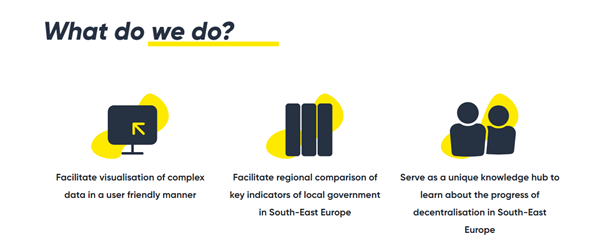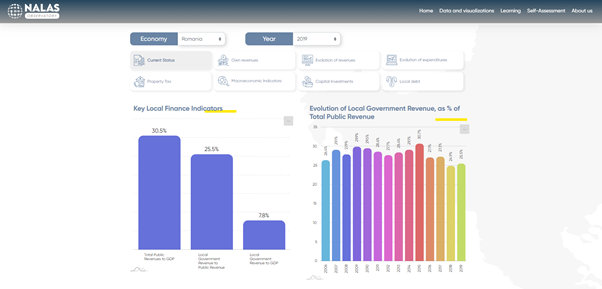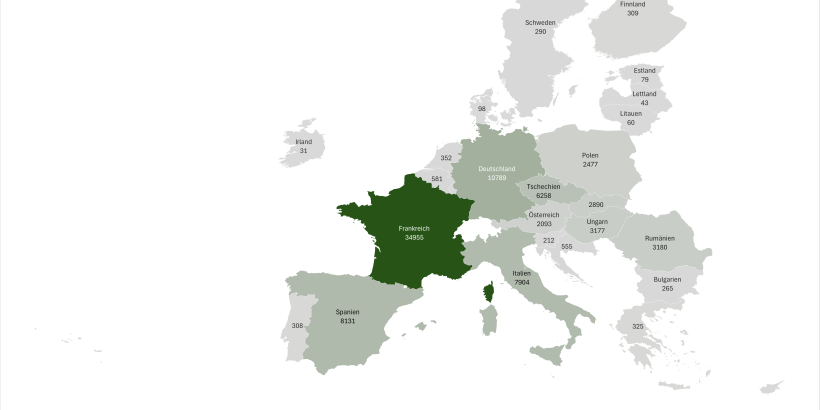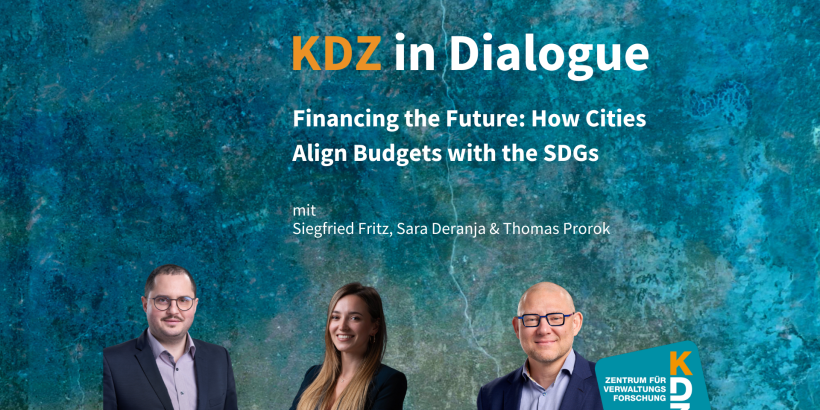

In today’s world, it is expected that policymakers at all levels of government use the best available evidence to make informed decisions and maximise policy impact while better managing resources. However, as sensible as informed policymaking sounds, the practice remains rather challenging as several factors and barriers impact the ability of all levels of governments to make effective use of data and information in policy decisions. Two of the main factors that challenge evidence-based policymaking is the fact there is not enough or ‘good’ enough data to address the complex questions facing policymakers and secondly, while high quality data/information may exist, it is not accessible to those in need and that could use it to make policy decisions.
NALAS Decentralization Observatory for South-East Europe
Building on the strong conviction that evidence-based policies can lead to better public policies and public services NALAS (Network of Association of Local Authorities of South-East Europe) and KDZ (Centre for Public Administration Research) partnered to develop the NALAS Decentralization Observatory for South-East Europe www.nalas-observatory.eu. The Observatory comes as a platform bridging the gap between demand and supply of high-quality data and information, facilitating access to and utilisation of timely, accurate, reliable and comparable data and information on status and development of local government finance in South-East Europe (SEE).
The overall aim is to help inform the policy advocacy efforts of NALAS member Local Government Associations, as stewards of local democracy and local governance in South-East Europe, but also support policymakers, experts, practitioners and researchers in their quest to improving local government policies and services.
The observatory shows that there are wide differences and disparities across countries in SEE in terms of revenues they provide for local government (LG) services, regardless of similarities in service responsibilities. For example, LGs in the Western Balkans receive about three times less per capita revenue (€274) than their counterparts from neighbouring SEE countries that are now EU members (€874), despite providing a similar and -sometimes even more - services. These disparities are also particularly visible in the level of local capital investments, a key component for promoting local economic development The observatory confirms that local (fiscal) autonomy remains a key challenge for the entire region, as local governments overall, remain largely underfunded and do not receive a fair share of the fiscal pie at the national level. The COVID-19 exacerbates this vicious cycle of low revenues and stagnation of fiscal decentralisation reforms that result in a decline in the autonomy of LGs.
User friendly and dynamic visualisation of complex data for 12 SEE countries
The observatory provides for a very user friendly and dynamic visualisation of complex data and information, allowing a thorough analysis of the current status and developments of local government finance for 12 countries in South-East Europe, including regional comparisons across countries and indicators that can be customized, downloaded and reutilised depending on the user’s needs and preferences. It also serves as a knowledge hub on local government finance in South-East Europe, by publishing state-of-the-art research on local government finance, waste management and the overall progress of decentralization in South-East Europe.
Given that it shows where money comes from and how it is being utilised it also aims at supporting local government budget transparency in South-East Europe and serve as a model for national platforms aiming at supporting evidence based policymaking and local budget transparency. For example, it shows how much Local Governments in each South-East European country are raising in taxes and fees and what are their spending priorities, or in which sectors they invest the most.
The Observatory builds on about a decade of NALAS work on Fiscal Decentralization and consolidates the knowledge developed by the NALAS Fiscal Decentralization Task Force representing 14 Local Government Associations from South-East Europe.
The Observatory is developed by NALAS – Network of Association of Local Authorities of South-East Europe, in partnership with KDZ – Centre for Public Administration Research and with the support of the BACID Program - Building Administrative Capacity in the Danube Region and Western Balkans, co-funded by the Austrian Development Cooperation and implemented by the Austrian Association of Cities and Town.



